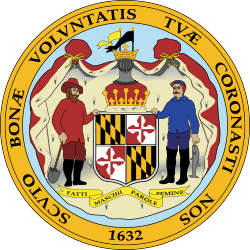| | ||||||||||||||||
| ||||||||||||||||
| ||||||||||||||||
| ||||||||||||||||
| Elections in Maryland |
|---|
 |
The 1963 Baltimore mayoral election saw the former mayor and governor Theodore McKeldin return to office for a second non-consecutive term as mayor by defeating incumbent mayor Philip H. Goodman.
Contents
To date, this is the last time a Republican won a mayoral election in Baltimore. [1] It is also the last time a Republican managed even 30% of the city's vote.

